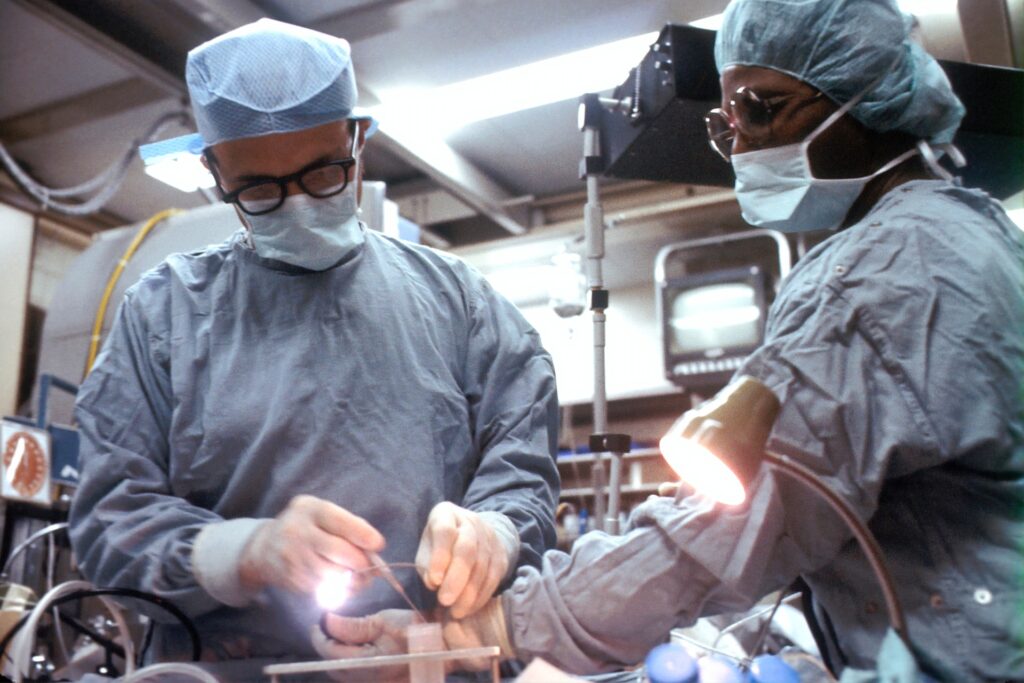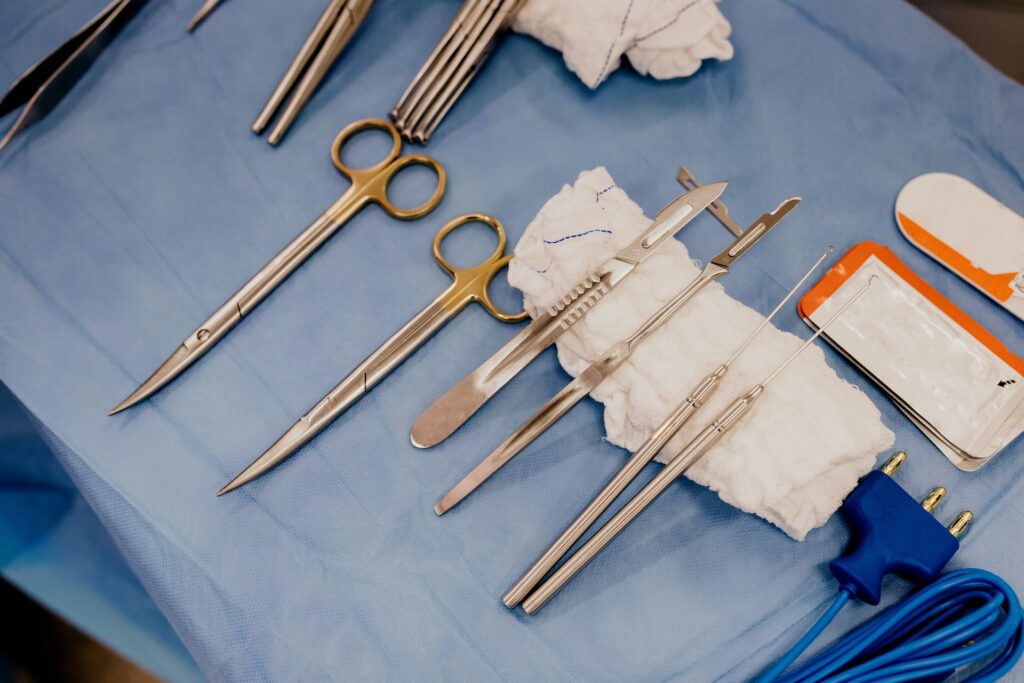Cysts are fluid-filled sacs that can develop anywhere in the body. While some cysts are harmless and do not require treatment, others can cause discomfort or become infected, necessitating their removal. One of the primary concerns for individuals considering cyst removal is the cost of the procedure.
The cost of cyst removal can vary widely depending on a variety of factors, including the size and location of the cyst, the type of procedure used to remove it, and the physician performing the procedure. In general, cyst removal can cost anywhere from a few hundred to several thousand dollars. Understanding the factors that influence cyst removal cost can help individuals make informed decisions about their treatment options.
Key Takeaways
- Cyst removal can be costly, with prices ranging from a few hundred to several thousand dollars.
- The cost of cyst removal depends on factors such as the size and location of the cyst, the type of procedure used, and the physician performing the procedure.
- Understanding the factors that influence cyst removal cost can help individuals make informed decisions about their treatment options.
Understanding Cysts
Cysts are sacs or pockets of tissue that can form anywhere in the body. They are filled with fluid, air, or other materials. They can vary in size from small to large and can be found on the skin, in the cells, or in the organs.
There are different types of cysts, each with its own characteristics. Sebaceous cysts are the most common type of cysts found on the skin. They develop from sebaceous glands and are filled with keratin and sebum. Epidermoid cysts and pilar cysts are also common types of cysts that develop in the skin. Ganglion cysts are fluid-filled sacs that form on tendons or joints. Ovarian cysts are fluid-filled sacs that develop on the ovaries. Digital mucous cysts are small cysts that form near the end of the fingers.
Cysts can develop for a variety of reasons, including genetics, infections, and injuries. They can also form in response to blocked pores or ducts. Cysts are usually harmless, but they can become painful or infected. In some cases, they may need to be removed.
The cost of cyst removal can vary depending on the size and location of the cyst, as well as the method used to remove it. In general, cyst removal is considered a minor procedure and is usually done in an outpatient setting. The cost can range from a few hundred to several thousand dollars, depending on the factors mentioned above.
It is important to consult with a healthcare professional if you have a cyst that is causing pain or discomfort. They can help determine the best course of treatment and provide information about the potential risks and benefits of cyst removal.
Types of Cyst Removal
Cyst removal is a medical procedure that involves surgically removing a cyst from the body. There are several types of cyst removal procedures, each with its own advantages and disadvantages.
Excision
Excision is the most common type of cyst removal surgery. It involves cutting the cyst out of the body using a scalpel. This procedure is typically performed under local anesthesia in an outpatient setting. Excision is a relatively simple procedure that can be done quickly and with minimal scarring.
Drainage
Drainage is a procedure that involves draining the fluid from a cyst using a needle or catheter. This procedure is typically performed on cysts that are infected or inflamed. Drainage is a relatively simple procedure that can be done quickly and with minimal scarring.
Laparoscopy
Laparoscopy is a surgical procedure that involves making small incisions in the abdomen and inserting a camera and surgical instruments. This procedure is typically used to remove cysts that are located deep within the body, such as ovarian cysts. Laparoscopy is a more invasive procedure than excision or drainage, but it allows for a more thorough removal of the cyst.
Overall, the type of cyst removal procedure that is best for a patient will depend on the location and size of the cyst, as well as the patient’s overall health. Patients should discuss their treatment options with their doctor to determine which procedure is right for them.
The Cyst Removal Procedure
Cyst removal is a surgical procedure that involves the removal of a cyst from the body. The procedure is typically performed by a surgeon, and can be done under local or general anesthesia.
Local anesthesia is typically used for smaller cysts, and involves the injection of lidocaine around the cyst to numb the area. The surgeon will then make an incision in the skin and remove the cyst. Stitches may be required to close the incision.
For larger cysts, general anesthesia may be necessary. This involves the administration of medication to put the patient to sleep. The surgeon will then make an incision in the skin and remove the cyst. Stitches may also be required to close the incision.
The type of anesthetic used will depend on the size and location of the cyst, as well as the preference of the surgeon and patient.
Overall, the cyst removal procedure is a relatively simple and straightforward surgery that can be done on an outpatient basis. However, as with any surgical procedure, there are risks involved, including infection, bleeding, and scarring. Patients should discuss the risks and benefits of the procedure with their surgeon before undergoing surgery.
Possible Risks and Complications
As with any medical procedure, there are potential risks and complications associated with cyst removal. While the procedure is generally safe, patients should be aware of the following possible outcomes:
Scarring
Scarring is a common side effect of cyst removal. The size and location of the cyst will determine the extent of scarring. In some cases, the scar may be barely noticeable, while in others, it may be more prominent. It is important to note that scars can take several months to fully heal and fade.
Inflammation
Inflammation is another possible complication of cyst removal. Inflammation can cause redness, swelling, and pain at the site of the incision. In some cases, this inflammation may be accompanied by pus or other discharge. Patients should monitor the incision site closely and contact their doctor if they experience any signs of infection.
Recurrence
While cyst removal is generally effective, there is a chance that the cyst may grow back. This is more likely if the entire cyst is not removed during the initial procedure. Patients should follow their doctor’s instructions carefully to reduce the risk of recurrence.
Bruising and Swelling
Bruising and swelling are common side effects of any surgical procedure. Patients may experience bruising and swelling at the incision site, as well as in the surrounding area. This should subside within a few days to a week after the procedure.
Overall, cyst removal is a safe and effective procedure with a relatively low risk of complications. However, patients should be aware of the potential risks and complications associated with the procedure and should follow their doctor’s instructions carefully to minimize these risks.
Recovery After Cyst Removal
After the cyst removal surgery, the recovery process is crucial to ensure proper healing and to minimize complications. Patients may experience some pain and discomfort after the procedure, which can be managed with pain relievers prescribed by the doctor.
To alleviate any swelling or discomfort, a warm compress can be applied to the affected area. This can also help speed up the healing process. Patients should follow their doctor’s instructions carefully to ensure a smooth recovery.
The recovery time after cyst removal surgery can vary depending on the size and location of the cyst, as well as the individual’s overall health. In most cases, patients can resume their normal activities within a few days to a week after the surgery.
During the recovery period, patients should avoid any strenuous activities or heavy lifting. They should also keep the affected area clean and dry to prevent infection. If any signs of infection or other complications arise, patients should contact their doctor immediately.
Overall, with proper care and attention, patients can expect a full recovery after cyst removal surgery.
Cyst Removal Cost
Cysts are fluid-filled sacs that can develop on various parts of the body. While most cysts are benign and do not require treatment, some cysts can cause discomfort and pain. In such cases, cyst removal may be necessary.
Cyst removal cost can vary depending on several factors, including the location and size of the cyst, the type of procedure performed, and the healthcare provider’s fees. In general, cyst removal cost can range from $150 to $3,000 or more.
Patients with insurance may have to pay a deductible before their insurance covers the cost of cyst removal. The deductible can range from a few hundred to a few thousand dollars. Patients should check with their insurance provider to determine their specific deductible and coverage for cyst removal.
Medicare may cover the cost of cyst removal if it is deemed medically necessary. However, patients should check with their healthcare provider and Medicare to determine their specific coverage.
In summary, cyst removal cost can vary depending on several factors, and patients should check with their healthcare provider and insurance provider to determine their specific costs and coverage.
Factors Affecting Cyst Removal Cost
The cost of cyst removal can vary depending on several factors, including the type of provider performing the procedure, the location of the provider, and the complexity of the procedure. Here are some of the factors that can affect the cost of cyst removal:
Provider Type
The type of provider performing the cyst removal can have a significant impact on the cost. For example, the cost of cyst removal performed by a dermatologist or a plastic surgeon may be higher than that performed by a general practitioner or a family physician. This is because dermatologists and plastic surgeons have specialized training and expertise in performing cosmetic and surgical procedures.
Provider Location
The location of the provider can also affect the cost of cyst removal. The cost of cyst removal in Georgia, for example, may be different from the cost of cyst removal in Texas or Washington. This is because the cost of living and the cost of doing business can vary from state to state.
Procedure Complexity
The complexity of the cyst removal procedure can also affect the cost. For example, a simple cyst removal that requires only local anesthesia may be less expensive than a more complex cyst removal that requires general anesthesia and a longer recovery time. Additionally, if the cyst is located in a sensitive area of the body, such as the face or the genitals, the cost may be higher due to the increased complexity of the procedure.
Epiphany Provider
If the patient is insured by Epiphany Provider, the cost of the cyst removal may be covered by their insurance plan. However, the cost may still vary depending on the factors mentioned above.
In conclusion, the cost of cyst removal can vary depending on several factors, including the type of provider, the location of the provider, and the complexity of the procedure. It is important for patients to discuss the cost of the procedure with their healthcare provider and their insurance provider to ensure that they are fully informed about the costs involved.
Preventing Cyst Recurrence
Cysts can be a recurring problem for some individuals, and it can be frustrating to deal with them repeatedly. However, there are some steps you can take to prevent cyst recurrence.
Firstly, it’s important to maintain good hygiene practices. Keeping the affected area clean and dry can help prevent the buildup of bacteria and skin cells that can contribute to cyst formation. Regularly washing the area with mild soap and water can also help prevent ingrown hairs and acne, which can lead to cysts.
In some cases, cysts can form due to a bacterial infection. If this is the case, antibiotics prescribed by a doctor may be necessary to prevent recurrence. It’s important to complete the full course of antibiotics as prescribed and to follow up with your doctor if symptoms persist.
Another factor that can contribute to cyst recurrence is trauma to the affected area. If the cyst was caused by a knot or injury, it’s important to avoid further trauma to the area. This may involve changing the way you sit or sleep to avoid putting pressure on the affected area.
Overall, preventing cyst recurrence involves maintaining good hygiene practices, treating any underlying infections or conditions, and avoiding further trauma to the affected area. By taking these steps, individuals can reduce the likelihood of experiencing cysts in the future.
Home Remedies for Cysts
Cysts can be a nuisance and can cause discomfort, but there are some home remedies that can help alleviate symptoms. It is important to note that home remedies are not a substitute for professional medical advice and treatment. If you have a cyst, it is best to consult with a healthcare provider for proper diagnosis and treatment.
Warm Compress
A warm compress can help reduce pain and inflammation associated with cysts. Simply soak a clean cloth in warm water and place it on the affected area for 10-15 minutes, several times a day. This can help increase blood flow to the area and promote healing.
Tea Tree Oil
Tea tree oil has anti-inflammatory and antimicrobial properties that can help reduce swelling and prevent infection. Mix a few drops of tea tree oil with a carrier oil, such as coconut oil, and apply to the cyst using a cotton ball. Do this several times a day until the cyst has healed.
Aloe Vera
Aloe vera has soothing and anti-inflammatory properties that can help reduce pain and inflammation associated with cysts. Apply aloe vera gel directly to the cyst and cover with a bandage. Leave on for several hours or overnight and repeat as necessary.
Apple Cider Vinegar
Apple cider vinegar has acidic properties that can help dissolve cysts and prevent infection. Mix equal parts of apple cider vinegar and water and apply to the cyst using a cotton ball. Cover with a bandage and leave on for several hours or overnight. Repeat daily until the cyst has healed.
Squeezing or Popping
It is not recommended to squeeze or pop a cyst, as this can lead to infection and scarring. It is important to keep the area clean and dry, and avoid touching or irritating the cyst. If the cyst becomes painful or infected, seek medical attention immediately.
In summary, there are some home remedies that can help alleviate symptoms associated with cysts. However, it is important to consult with a healthcare provider for proper diagnosis and treatment.
When to Consult a Doctor
Cysts can be bothersome and uncomfortable, but in most cases, they are harmless and will go away on their own. However, there are times when it is necessary to seek medical attention for a cyst. Here are some situations when it is important to consult a doctor:
- If the cyst is causing pain or discomfort
- If the cyst is growing rapidly
- If the cyst is red, swollen, or warm to the touch
- If the cyst is located in a sensitive area, such as the face or genitals
- If the cyst is affecting your daily activities
If you are experiencing any of these symptoms, it is important to consult a doctor or dermatologist for a proper diagnosis and treatment plan. A doctor can determine if the cyst is an abscess or another type of skin growth, and recommend the appropriate course of action.
In some cases, a doctor may recommend cyst removal. This may be necessary if the cyst is causing pain or discomfort, or if it is located in a sensitive area. The cost of cyst removal can vary depending on the size and location of the cyst, as well as the type of procedure used.
Overall, it is important to monitor any cysts and seek medical attention if you have concerns. By consulting a doctor, you can ensure that you receive the proper diagnosis and treatment for your condition.
Frequently Asked Questions
What is the average cost of removing a small cyst?
The cost of removing a small cyst typically ranges from $150 to $350. However, the cost may vary depending on the location of the cyst, the size of the cyst, and the healthcare provider performing the procedure.
How much does it cost to have a cyst removed without insurance?
The cost of having a cyst removed without insurance can range from $500 to $3,000, depending on the factors mentioned above. It is important to note that the cost may also vary based on the type of healthcare provider performing the procedure.
Is cyst removal covered by insurance?
In most cases, cyst removal is covered by insurance. However, it is important to check with your insurance provider to determine the extent of your coverage. If the cyst is causing discomfort or is deemed medically necessary, it may be fully or partially covered by insurance.
What factors affect the cost of cyst removal?
The cost of cyst removal may be affected by several factors, including the size and location of the cyst, the type of healthcare provider performing the procedure, the type of anesthesia used, and any additional tests or procedures needed.
Is it worth it to have a cyst removed?
The decision to have a cyst removed should be made in consultation with a healthcare provider. In some cases, cysts may be harmless and may not require removal. However, if the cyst is causing discomfort, is located in a sensitive area, or is suspected to be cancerous, it may be necessary to have it removed.
Can cysts be removed without surgery?
In some cases, cysts can be removed without surgery using non-invasive methods such as aspiration or laser therapy. However, the effectiveness of these methods may vary depending on the type and location of the cyst. It is important to consult with a healthcare provider to determine the most appropriate method of cyst removal.





